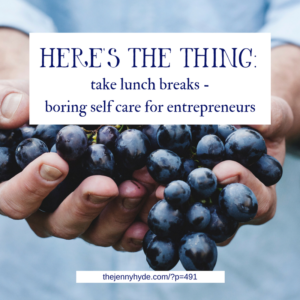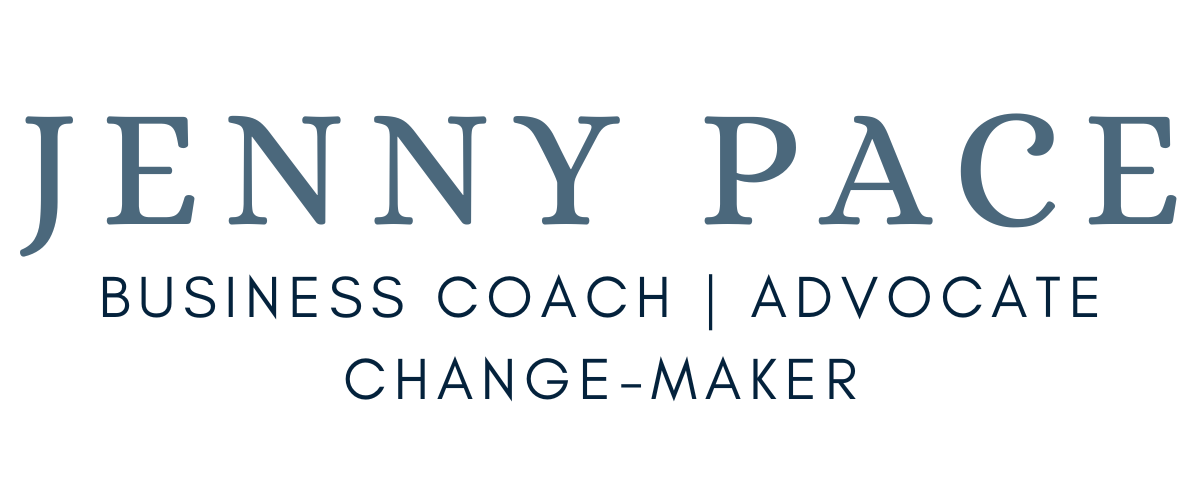 In recent conversations with clients and at the Small Creative Business Retreat, it has come to my attention that many small business owners are not taking lunch breaks. In fact, some are not even eating lunch!
In recent conversations with clients and at the Small Creative Business Retreat, it has come to my attention that many small business owners are not taking lunch breaks. In fact, some are not even eating lunch!
It’s time to change. I’m starting a lunch break revolution because, apparently, we need one.
I’m not going to argue with the wise people who tell you breakfast is the most important meal of the day. That would be foolish, I’m sure.
But lunch holds a very particular significance because it’s right there, smack bang in the middle of the day. Which makes it an ideal – nay – essential time for a proper break. You’ve put in the hours in the morning, and you brain and body are in need of sustenance, both food and time.
You know, if you actually employed yourself, you’d be legally obliged to give yourself at least 20 uninterrupted minutes for every 6 hours, plus tea and loo breaks.
Ask yourself right now: do you get 20 minutes off before you stop working in the evening?
And then ask yourself this: do you often feel overwhelmed, tired, unclear, unfocused, or unsure? If the answer is yes, let me suggest something… Take a lunch break!
Not just any kind of lunch break, a proper one. One in which your brain gets to slow down and relax a bit, or your hands get a good rest. A break that allows you to return to the land of real human beings, not a one-(wo)man business machine. A break in which you breathe, notice yourself eating nourishing food, drink something lovely, and sit quietly for a moment or two.
Things that do not constitute taking a lunch break:
- Scrolling through Facebook, Pinterest or Instagram
- Sitting by your computer or laptop, trying to get food in your mouth without looking
- Any kind of chore, or to do list item
If you’re currently kidding yourself that spending 10 minutes on Facebook, getting worked up about what other people are doing, is actually a lunch break, then please – stop now.
Here’s the thing…
I’m going to tell you something you may find shocking. I take a lunch break every single day, for at least 30 minutes, and usually longer. I get up, make my lunch, and I sit on my sofa – 2 metres away from my laptop and phone.
Sometimes I pull out a (non-work) book. Sometimes I make notes (but only after I’ve finished eating). I breathe. I put on fun music. I stretch.
Sometimes (here it comes) I take a 2 hour lunch break. I go to yoga, or I simply need more downtime in order for my brain and my body to return to work mode. It’s taken me a little while to know that this is okay. I started off worrying that I’d need to schedule in “make up” time so that I was “allowed” to have time off. What I’ve discovered is that having a longer break when I need one allows me to work longer, or get up earlier, without me forcing it. It happens naturally. Honest.
Here’s the bit I really want you to hear: taking lunch breaks is a way to develop self-respect and self-worth. You are worthy of time off to eat a lovely sandwich and think about daffodils! Sometimes, we all feel like we’re not “allowed” to rest, that it has to be hard and we have to suffer for it to be worth it. Sometimes, we measure our productivity on how much we sacrificed to get there. You don’t have to suffer or sacrifice downtime to be successful.
And you don’t have to wait until you magically believe you’re worth it to start taking breaks and looking after yourself. Start taking them, and the belief will start to follow. You’ll be sending yourself the message that you deserve to be cared for, and so you’ll start to feel it, too.
Maybe 2 hours is a big ask for you, but try 20 minutes at least. I dare you!
Here are some ideas:
- Leave the building. Physically remove yourself from work to clear your head and refresh you body and brain.
- Breathe deeply. Follow a guided meditation, or simply take big, deep breaths by yourself.
- Plan delicious lunches. If you have something to look forward to, surely you’ll want to sit and savour it?
- Turn off all screens. You want to be present in your break, so limit the distractions that could pull you back into work.
- Get a dog or borrow someone else’s. Dog-walking is great, because you can concentrate on something else, and you have a moral obligation to take a break! Plus, y’know, cute.
Have a wonderful bank holiday weekend!
Jx
PS If you’re still thinking ‘Yeah, right, how unrealistic, there’s no way I could do that, it’ll ruin my business’, I’M TALKING TO YOU. Go back to the beginning, read again. Or email me and tell me exactly how taking 20 minutes off every day is going to ruin your business.



